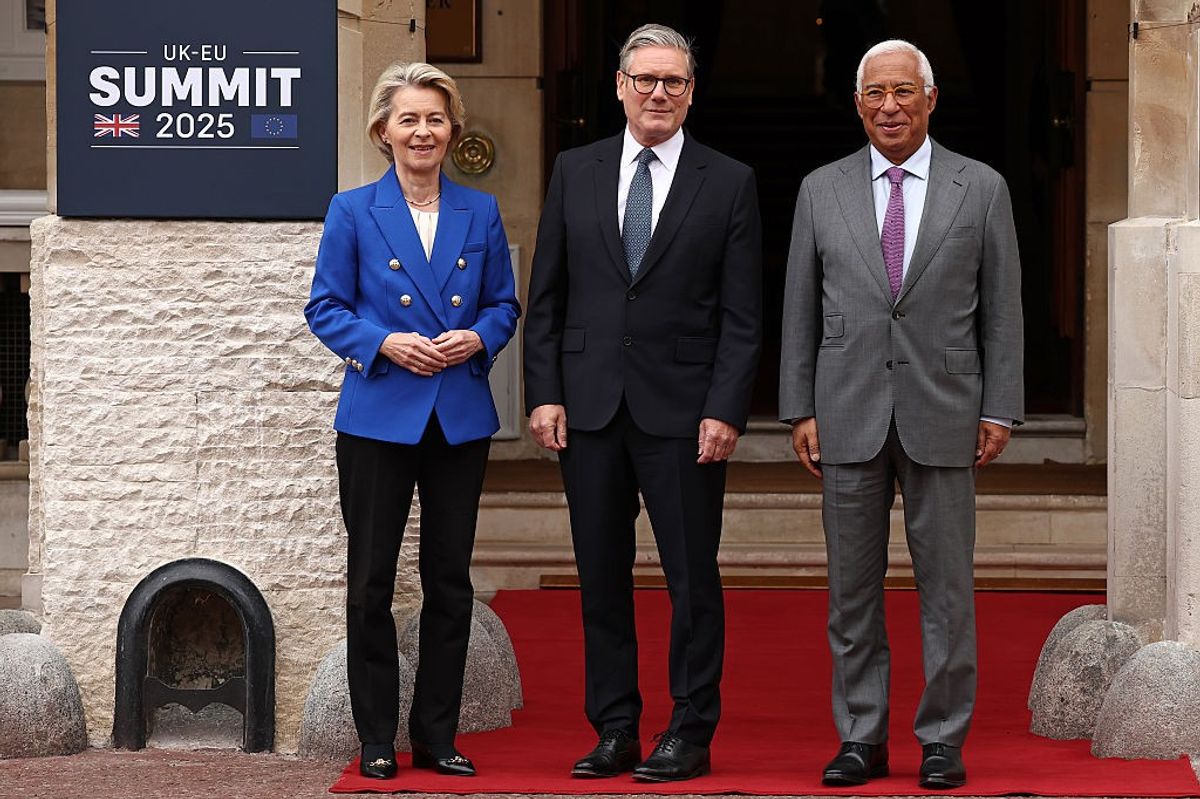Britain's new food standards deal with the European Union to prevent border checks on agricultural produce such as meat and dairy will further ease contentious post-Brexit trade frictions between Northern Ireland and the rest of the UK.
The Sanitary and Phytosanitary (SPS) agreement, a key part of Monday's wider reset in relations, seeks to vastly cut checks and paperwork on plant and animal products, reduce lengthy lorry queues and allow food and drink to be traded more freely again.
It also means that food and horticultural products being shipped to British-ruled Northern Ireland from the rest of the UK will no longer need the politically sensitive checks which have been in place since Britain left the EU.
The joint agreement "will make it easier for food and drink to be imported and exported" to reduce "burdens on businesses and led to lengthy lorry queues at the border", London said.
"Some routine checks on animal and plant products will be removed completely," it added.
Northern Ireland remained in the EU single market for goods when the rest of the UK left in order to keep open the border with EU member Ireland, but that necessitated specific trade rules first simplified two years ago under the Windsor Framework deal.
The specific arrangements for Northern Ireland dominated politics in the region for years, and led to a two-year boycott of the devolved assembly by the main pro-British party, the Democratic Unionist Party (DUP), until early last year.
The deal was welcomed by business groups and most political parties. The DUP said it would need to study the detail.
"While we can recognise in superficial terms that there has been some progress, progress alone, with the architecture remaining in a way that leaves us in a distinctly different position from the rest of United Kingdom, is something we cannot countenance long term," DUP leader Gavin Robinson told reporters.
The Windsor Framework will remain in place alongside the SPS agreement, meaning customs declarations will still be required at Northern Irish ports but also permitting Northern Irish firms to retain greater access to EU markets that others in the UK.
"Of course this deal does not solve every challenge overnight, but it sets a very welcome new tone," Tina McKenzie, policy chair of the Federation of Small Businesses said in a statement.
The European Union is by far the UK's largest trading partner, but British exports to the bloc have fallen by 21 per cent, and imports by 7 per cent, since it left the EU in 2020.


